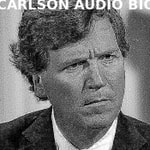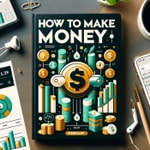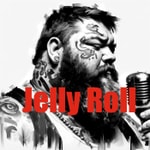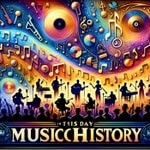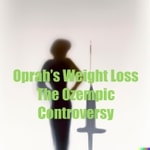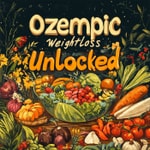Drake VS. Kendrick Lamar- Whats The Beef – Details, episodes & analysis
Podcast details
Technical and general information from the podcast's RSS feed.
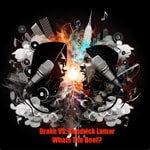
Drake VS. Kendrick Lamar- Whats The Beef
Quiet.Please
Frequency: 1 episode/3d. Total Eps: 146

But this is hip-hop and them niggas should know what time it is." While the verse didn't directly attack Drake, the competitive nature and self-proclaimed "king of New York" label stirred the pot. Drake's response in an interview with Billboard magazine was dismissive, stating, "I know good and well that Kendrick's not murdering me." Subliminal Jabs and Speculative Responses Over the next few years, both Drake and Kendrick continued their streak of chart-topping hits while taking subliminal jabs at each other: Kendrick's "The Heart Part 4" (2017): "Tables turn, lesson learned, my best look / You jumped sides on me, now you 'bout to meet Westbrook." Interpreted as a shot at Drake's infamous beef with Meek Mill and his switching affiliations between Young Money and OVO. Drake's "Duppy Freestyle" (2018): Although primarily aimed at Pusha T, many lines were seen as indirect shots at Kendrick. "I got a lot of friends within the rap game, but you ain't that, fam." 2015 BET Cypher and TDE vs. OVO The 2015 BET Cypher further fueled the rivalry, with TDE and OVO appearing in separate ciphers. Kendrick Lamar's cypher included lines perceived as jabs at Drake's "started from the bottom" narrative: "Nothing's been the same since they dropped 'Control'
And tucked a sensitive rapper back in his pajama clothes." The competitive energy between TDE and OVO was palpable, and fans began analyzing each lyric and social media post for hints of the ongoing rivalry. Impact on Their Music and Careers The rivalry between Drake and Kendrick Lamar didn't just remain in the realm of subliminal jabs; it had a tangible impact on their music and careers. Both artists pushed their creative boundaries, often releasing their best work during this period. Drake's If You're Reading This It's Too Late (2015): Released as a surprise mixtape, it contained several tracks that fans interpreted as aimed at Kendrick. "Energy" and "6 God" reflected a more aggressive tone in Drake's music. Kendrick Lamar's To Pimp a Butterfly (2015): Songs like "King Kunta" and "The Blacker the Berry" addressed identity and power, with some lines hinting at the competitive rap landscape. The album's experimentation with jazz and funk showcased Kendrick's willingness to evolve artistically. Drake's Views (2016): Focused more on dancehall and pop sounds, moving away from the aggressive style of If You're Reading This It's Too Late. "Hype" and "Weston Road Flows" retained some competitive energy. Kendrick Lamar's DAMN. (2017): Tracks like "DNA." and "HUMBLE." were seen as power statements, reinforcing Kendrick's dominance. The album's Pulitzer Prize win cemented his place as a top-tier lyricist. 2018: "Sicko Mode" Collaboration and Pusha T Beef Despite the rivalry, Drake and Kendrick appeared on the same song in 2018. Travis Scott's "Sicko Mode" featured both artists, albeit in different sections, leaving many fans wondering if they had buried the hatchet. However, the feud with Pusha T reignited tensions. Drake vs. Pusha T Drake's long-standing beef with Pusha T reached new heights in 2018 when Pusha released "The Story of Adidon," exposing Drake's secret son. While Kendrick Lamar didn't directly involve himself, his collaboration with Pusha T on "Nosetalgia" (2013) and continued partnership with Kanye West hinted at implicit support. 2024: The Feud Reignites In May 2024, the rivalry reached new heights when Kendrick released a scathing diss track titled "Euphoria," aimed directly at Drake. The song is packed with personal attacks, questioning Drake's authenticity, work ethic, and even his use of the n-word. Kendrick throws shade at Drake's mob boss persona, questions the legitimacy of his physique, and challenges the quality of his music. Lines like, "You ain’t even write your own book, so what you preachin' for?" and "Fake abs and fake flows, who are you reachin' for?" left no doubt that Kendrick was coming for Drake's crown. Current Situation (May 2024) The release of "Euphoria" has reignited the rap world, with all eyes on Drake to see how he will respond. Speculation is rife that this could escalate the feud further, with Drake rumored to be preparing a diss track of his own. Public and Industry Reaction Fans and fellow artists have taken sides, dissecting the lyrics for hidden meanings. Some view Kendrick's track as a masterful takedown, while others await Drake's response. Industry insiders are watching closely, as a response from Drake could reshape the rap landscape. Social Commentary Embedded in "Euphoria" The social commentary embedded in "Euphoria" regarding cultural appropriation and racial identity adds another layer to the conflict. Kendrick raises questions about authenticity, particularly with Drake's use of the n-word and perceived cultural appropriation. Whatever happens next will likely only serve to pad the bank accounts of all involved. Thanks for listening- Remember to like and Share wherever you get your podcasts.
Recent rankings
Latest chart positions across Apple Podcasts and Spotify rankings.
Apple Podcasts
🇩🇪 Germany - entertainmentNews
29/07/2025#57🇩🇪 Germany - entertainmentNews
28/07/2025#39🇨🇦 Canada - entertainmentNews
08/05/2025#80🇨🇦 Canada - entertainmentNews
07/05/2025#62🇬🇧 Great Britain - entertainmentNews
22/02/2025#92🇬🇧 Great Britain - entertainmentNews
21/02/2025#82🇬🇧 Great Britain - entertainmentNews
20/02/2025#65🇬🇧 Great Britain - entertainmentNews
19/02/2025#47🇬🇧 Great Britain - entertainmentNews
18/02/2025#28🇺🇸 USA - entertainmentNews
18/02/2025#91
Spotify
No recent rankings available
Shared links between episodes and podcasts
Links found in episode descriptions and other podcasts that share them.
See all- http://www.quietplease.ai
2598 shares
- https://amzn.to/3ODvOta
1394 shares
RSS feed quality and score
Technical evaluation of the podcast's RSS feed quality and structure.
See allScore global : 59%
Publication history
Monthly episode publishing history over the past years.
Kendrick Lamar Fires Back at Drake in Explosive New Diss Track "Not Like Us"
mardi 17 septembre 2024 • Duration 02:35
Kendrick Lamar, known for his lyrical depth and critical acclaim, seems to use "Not Like Us" to address issues he perceives in Drake's approach to music and public persona. The song's lyrics scrutinize authenticity and artistic integrity, themes that Lamar has often woven into his works. This isn't the first time Lamar has used his music to comment on the state of the industry and his peers, but the direct naming of Drake makes this track particularly significant.
Drake, on the other hand, has been known for his versatile musical style and has a history of engaging in public disputes with other artists. His approach often includes subtle jabs and lyrical responses that fuel his ongoing rivalries within the industry. Whether "Not Like Us" will prompt a new musical response from Drake remains a point of speculation and excitement for fans.
The Kendrick Lamar-Drake feud dates back several years, with moments of tension surfacing occasionally in various forms. It includes not just direct confrontations in music but also indirect mentions and competitive one-upmanship, reflective of the broader competitive nature in hip-hop culture.
Both artists have vast fan bases and have influenced the music scene profoundly. Kendrick Lamar, often praised for his narrative-driven albums and social commentary, contrasts with Drake's blend of singing and rapping, which has produced a string of chart-topping hits. This feud not only highlights their differences in musical approach but also sparks conversations about the directions in which hip-hop is evolving.
As "Not Like Us" circulates and fans parse its lyrics, the impact on both their careers and their standings in the industry will be closely watched. Feuds like this are a reminder of how personal and professional dynamics can intertwine in hip-hop, creating layers of intrigue that extend beyond the music itself. Whether this track will escalate their feud or close a chapter in their ongoing rivalry is yet to be seen, but it undoubtedly adds a new layer to the storied careers of Kendrick Lamar and Drake.
Kendrick Lamar Vs. Drake: The Epic Rap Rivalry Shaping Modern Hip-Hop
dimanche 15 septembre 2024 • Duration 03:20
Kendrick Lamar, hailing from Compton, California, is often praised for his deep lyrical content, storytelling ability, and commitment to addressing pressing social issues. On the other hand, Drake, from Toronto, Canada, blends his rapping with R&B, creating a more commercially appealing sound that has won him a massive global fanbase.
The tension between the two was hinted at when Kendrick Lamar dropped a verse on Big Sean's "Control" in 2013, calling out several rappers by name, including Drake, which many saw as a challenge to the status quo of the rap game. Kendrick's verse was seen as a call to arms for lyricism and a sort of revivalist cry for the genre, suggesting that he was eager to claim the top spot by merit, not just by charts.
Drake's response to these and subsequent bars has varied, sometimes appearing dismissive and at other times directly confrontational. In tracks like "The Language," Drake seems to hit back, underscoring his own position in the industry and his disinterest in rap battles that detract from his musical and commercial achievements.
This feud came to a head with Kendrick Lamar’s 2017 album, "DAMN.," which many fans and critics interpreted as containing several tracks with veiled jabs at Drake. The competitive nature of the album encapsulated in tracks like "HUMBLE." and "ELEMENT." demonstrate Lamar's confidence and indirect commentary on the state of the rap game, which many interpreted as superiority over Drake's style and success.
Drake, meanwhile, continued to excel commercially, releasing hits that maintain his status in the music industry, despite criticism of his authenticity and depth compared to Kendrick. His albums and tracks often do not respond directly to Kendrick’s challenges but rather focus on solidifying his place through broad appeal and chart success.
Both artists utilize their platforms and musical talents differently to assert dominance, which only fuels public and media interest in their feud. The rivalry, whether overt or subliminal, has spurred both to push boundaries in their music and image. Despite the competitive tension, this feud underscores a broader narrative about the evolution of rap as a genre and its role in a changing music industry, highlighting different approaches to success and influence in hip-hop.
In sum, the Lamar-Drake feud encapsulates a significant period in hip-hop history, where competition not only drives artistic expression but also defines the commercial landscape of the music industry. Whether through direct "diss" tracks or more nuanced lyrical maneuvers, both artists continue to influence and reshape the genre, each in their distinctive ways.
Lil Poppa and Dej Loaf's "Feel The Same When You're Sober" Taps Into Hip-Hop's Authenticity Debates
mardi 27 août 2024 • Duration 02:26
The track "Feel The Same When You're Sober" by Lil Poppa, featuring Dej Loaf, has gained attention not only for its content and artistry but also for its alleged ties to the Lamar and Drake discourse. This song taps into themes of authenticity, consistency, and introspection, which are frequently explored in hip-hop. It challenges listeners to consider whether their feelings and representations stay consistent regardless of circumstances, such as sobriety. Dej Loaf's contribution adds a complementary layer, intertwining a perspective that enhances the track's depth and appeal.
The collaboration between Lil Poppa and Dej Loaf exemplifies how artists can yield impactful music that resonates with broader conversations within the industry. While not directly involved, the thematic elements of "Feel The Same When You're Sober" indirectly echo the publicized elements of the Lamar-Drake dynamic, where authenticity and artistic integrity are often at the forefront. This adds a layer of interpretative depth to the track, making it relevant not only to aficionados who follow the artists' careers but also to those who track the ongoing narratives and rivalries in hip-hop culture.
Notably, this song and the circumstances around it are reflective of the broader industry trend where music often serves as a mirror to the artists' real-life dynamics. Through their music, artists like Lil Poppa and Dej Loaf continue to contribute to the vibrant dialogue within hip-hop, prompting listeners to critically engage with the content beyond its surface level. Whether it serves as a comment on industry feuds or as a standalone artistic statement, "Feel The Same When You're Sober" showcases the intricate ways hip-hop artists can weave personal truth into public artistry, offering a multidimensional experience that transcends traditional musical boundaries.
The Epic Rivalry Between Kendrick Lamar and Drake: Shaping the Future of Hip-Hop
dimanche 25 août 2024 • Duration 02:36
Kendrick Lamar, known for his deep lyrical complexity and ability to address significant socio-political themes within his music, contrasts with Drake's style, which often combines catchy hooks with emotional and interpersonal explorations. This stylistic difference has been one root of their competitive relationship, as each artist appeals to different aspects of the hip-hop spectrum.
The origins of their rivalry can be traced back to various collaborations and interactions over the years, with each artist occasionally appearing to reference or respond to the other in their tracks. However, the rivalry was more implicit until 2024, when it became explicitly clear in their lyrics and public statements.
In 2024, the feud became a centerpiece in the hip-hop community, driving discussions and debates among fans and critics alike. Both artists released tracks that directly addressed one another, showcasing not only their lyrical prowess but also their personal grievances and competitive spirits. These tracks often dissected each other's careers, achievements, and even personal lives, escalating the feud to one of the most talked-about clashes in contemporary music.
Lamar's victory in this hip-hop feud was not just about outshining Drake musically but also resonated with his ability to maintain authenticity and artistic integrity, which many of his fans value highly. Lamar's approach in dealing with the feud—through sharp, insightful lyrics and maintaining his thematic depth—allowed him to emerge with a perceived upper hand.
This rivalry, while highlighting competitive tension, also serves to push both artists creatively. It forces them to innovate and elevate their music to respond to one another, thereby contributing significantly to the evolution of the hip-hop genre. As of now, the effects of this feud extend beyond their music, influencing up-and-coming artists and the industry at large, emphasizing the dynamic and ever-evolving nature of hip-hop music.
"Rap Titans Drake and Kendrick Lamar's Feud Cools as they Focus on Artistic Growth"
samedi 24 août 2024 • Duration 03:23
Drake, hailing from Toronto, Canada, and Kendrick Lamar, from Compton, USA, represent two distinct voices and styles within the rap genre. Drake is known for his emotive verses and blending of singing and rapping, creating a more melodious approach to hip-hop. Kendrick, on the other hand, is celebrated for his complex lyrical prowess and deep thematic content, often exploring social and political issues.
The origins of their feud are somewhat nebulous, often traced back to subtleties and indirect mentions in their lyrics. It gathered momentum with Kendrick's verse on Big Sean's 2013 track "Control," where he called out several rappers, including Drake, proclaiming himself the "King of New York" and challenging his peers to step up their game. This verse set the hip-hop community ablaze, with many artists responding through their music or in interviews. Kendrick's aggressive assertion of dominance was a direct challenge to Drake's top-tier status in the rap hierarchy.
Drake responded indirectly in various tracks and interviews, suggesting that competitive fires were stoked. Tracks like "The Language" from Drake’s album "Nothing Was the Same" are speculated to contain responses to Kendrick's call-out. However, Drake has often downplayed the rivalry in public statements, acknowledging Kendrick's talent but shrugging off any real animosity.
Despite the voyeuristic thrill fans get from such rivalries, neither artist has escalated the feud to the excessive heights that some past hip-hop rivalries have reached. Instead, both artists seem to have focused on their personal growth and careers. Kendrick has delved deeper into complex, narrative-rich albums like "To Pimp a Butterfly" and "DAMN.," while Drake has dominated charts with his versatile hits across multiple albums.
The cooling off of this feud, whether due to a mutual respect, a strategic pivot in their careers, or simply the passage of time, leaves many fans reminiscing about what could have been a historic rap battle. However, it also reflects the evolving nature of hip-hop, where direct confrontations may sometimes give way to subtler, more strategic forms of competition. The lack of a full-blown war between Drake and Kendrick Lamar serves as a reminder of their primary roles as artists committed to their crafts and messages, rather than getting mired in potentially destructive rivalries.
While some fans feel robbed of a dramatic chapter in hip-hop history, it's clear that both artists have chosen paths that prioritize artistry and personal evolution over direct confrontation. This approach, while perhaps less sensational, may indeed contribute to the longevity and depth of their respective careers in an industry often marked by fleeting fame.
Captivating Clashes: Exploring the Intersection of Celebrity Feuds, Relationships, and the Public Fascination
jeudi 22 août 2024 • Duration 03:04
Though much of the feud remains speculative and based on interpretations of lyrics and interviews, fans and critics alike often analyze their songs for possible subliminal messages and shots at one another. For instance, Lamar's verse on Big Sean's 2013 track "Control" is frequently cited, where he calls out several rappers by name, including Drake, challenging their lyrical skills and claiming his dominance in the rap game. Drake has seemingly responded through various tracks and comments during interviews, highlighting a competitive but respectful rivalry. Both artists, at different times, have downplayed the feud, emphasizing mutual respect or dismissing the speculation outright.
Adding another layer to the interplay of celebrity interactions, we find cross-overs into the personal lives and relationships of stars, which often attracts public and media scrutiny. An example here is Jennifer Lopez and Cris Judd, who made headlines when they appeared together at significant public events, such as the 74th Annual Academy Awards in 2002. Here, the intersection of film, music, and personal lives showcases how intertwined these aspects can be. Judd, a dancer and choreographer, and Lopez, a multifaceted entertainer, represented a fascinating coupling within the tapestry of Hollywood and its multifaceted narratives.
Meanwhile, other celebrity relationships, like the one between Ashton Kutcher and Demi Moore, have similarly captured the public's fascination. Their relationship, notable in part for the age difference between them, highlighted themes of love, partnership, and the pressure of public scrutiny, further illustrating how the personal dimensions of well-known personalities are subject to the same kind of fervent speculation and discourse as their professional undertakings.
In conclusion, while the essence of feuds like that between Lamar and Drake can underscore a deeper narrative about competition and respect in the music industry, it is the public's glimpse into these professional and personal realms that often keeps the audience engaged. As celebrities navigate their careers and personal lives, the public's continued interest underscores an enduring fascination with the interplay between the personal attributes and professional achievements of those in the limelight.
"Drake's Subtle Nod to Chingy's Hit Sparks Speculation in the Hip-Hop World"
mardi 20 août 2024 • Duration 02:21
Drake, known for his strategic lyrical choices and a knack for staying relevant in pop culture conversations, often uses references or name-drops in his music that leave listeners analyzing his words for deeper meaning. His mention of Chingy’s song, a nostalgic track from the early 2000s best known for its catchy hook and mainstream appeal, brings to light how Drake utilizes various elements from hip-hop history in potentially unexpected ways.
While some may see this as a straightforward shout-out to a memorable song, others interpret it as a strategic move in the complex chess game of hip-hop rivalry, especially amid any existing tensions between Drake and his peers. Given Drake's history with using his tracks and social media to address his standing in the rap community, this mention might be packed with more than just nostalgia.
On Chingy's end, such a nod from a contemporary giant like Drake could re-spark interest in his earlier work, demonstrating the enduring impact of past hits on today’s music scene. For the audience, it's an opportunity to revisit the early 2000s and reflect on how much the music landscape has evolved since then.
As for the rivalry with Kendrick Lamar, it is unclear how mentioning Chingy might relate directly. Nonetheless, rap feuds often involve complex layers of communication, with artists sending messages through both overt calls and subtle hints in their music and public statements.
In conclusion, Drake’s allusion to "One Call Away" opens up a space for various interpretations—whether it is a simple homage to a classic hit, a clever tactical maneuver in a broader feud, or merely an artistic choice meant to evoke a certain mood or response from the audience. This complexity is characteristic of Drake’s style, where lyrical intricacy meets cultural commentary, keeping his work endlessly fascinating to decode.
The Riveting Rivalry: Kendrick Lamar and Drake's Lyrical Showdown Captivates Hip-Hop Fans
dimanche 18 août 2024 • Duration 02:47
Kendrick Lamar, hailing from Compton, California, and Drake, the Toronto native, have both carved out substantial legacies in their respective musical careers. Their feud has seen Kendrick releasing tracks that many interpret as digs at Drake. The tension between the two was palpable, feeding into the narrative of competitive rap culture where emcees test each other's skills and resolve through their music.
One moment that famously highlighted the rift was Lamar's verse on Big Sean's track "Control" in 2013, where Kendrick named several rappers, Drake included, essentially throwing down the gauntlet and challenging them to step up their games. This was seen as a direct competitive push rather than a personal attack. However, it fueled speculation about their relationship.
Drake's response to these challenges has been more measured. He has occasionally discussed the competitive nature of hip-hop in interviews, downplaying any serious animosity but acknowledging the rivalry. The Canadian artist seems to prefer addressing such conflicts subtly within his tracks and avoiding direct confrontations.
An interesting twist to their story involves NBA superstar Stephen Curry, who reportedly reacted to Kendrick's supposed diss tracks aimed at Drake. Curry, a friend of Drake, found the situation worth a laugh rather than serious concern, indicating the interactions were all in good sport rather than actual hostility. This incident underlines how celebrity interactions in the entertainment and sports industries can intertwine, leading to media speculation and fan intrigue.
The Kendrick Lamar-Drake narrative exemplifies how competition can be a driving force for creativity in the music industry. While the two artists might not see eye to eye in every regard, their indirect exchanges have undoubtedly contributed to some exhilarating moments in contemporary hip-hop. Their musical jousting pushes them to refine their craft, keeping their sharp lyrical and creative skills at the forefront of the genre. Despite the so-called beef, both Kendrick and Drake have maintained respect for each other's accomplishments and influence in music, aligning with the culture's broader ethos of competition mixed with respect.
Rap Titans Kendrick Lamar and Drake's Feud Captivates Hip-Hop Fans Worldwide
jeudi 15 août 2024 • Duration 02:42
Kendrick Lamar, hailing from Compton, California, has been celebrated for his intricate lyricism and deep thematic content, tackling issues like social injustice, personal struggle, and community. Drake, from Toronto, Canada, has carved his niche as a genre-bending artist who merges hip-hop with R&B, and his tracks often dominate the charts with their catchy melodies and introspective lyrics.
The roots of the feud can be traced back to subtle jabs and veiled references in their songs and interviews, suggesting a competitiveness or indirect confrontation. Observers and fans have often speculated about these lines being direct disses aimed at each other, analyzing lyrics for any shred of evidence of a beef.
The peak of this feud seemed to escalate when Kendrick Lamar released what many saw as a direct diss track, widely regarded as one of the most overt and aggressive entries in the history of rap battles. The track showcased Kendrick’s sharp lyrical ability, as he crafted complex rhymes and flows that not only showcased his prowess as a wordsmith but also directly called out his perceived rival.
The response to this track was explosive. Fans and fellow artists alike took to social media and other platforms to discuss and dissect the implications of this move by Lamar. Would this herald a new era of back-and-forth diss tracks, or would it prompt a more conciliatory approach towards resolving their differences?
Historically, rap feuds have ranged from friendly competitive spirit to serious, deeper conflicts. The feud between Kendrick Lamar and Drake, however, invites an examination of the motivation behind such public displays of rivalry. Is it purely for the spectacle and increased media attention that boosts their profiles and music sales, or is there a genuine clash of artistic or personal values?
In conclusion, the Kendrick Lamar and Drake feud remains a captivating chapter in the narrative of contemporary hip-hop. Whether it will lead to greater musical innovation or encourage a dialogue between differing artistic approaches remains to be seen. As the world watches and listens, the enduring impact of such feuds on the culture and music of hip-hop continues to be a subject of much interest and debate.
LeBron James' Crossover Connections: Exploring the Intersection of Sports and Music Stardom
mardi 13 août 2024 • Duration 02:13
The convergence of these relationships was notably highlighted when LeBron was seen attending a Kendrick Lamar concert in Los Angeles. Kendrick Lamar, a Pulitzer Prize-winning artist known for his introspective lyrics and impact on hip-hop, commands a significant following, which includes fans like LeBron. The attendance of such a high-profile sports figure at Lamar's concert underscores the respect and support that artists and athletes often show each other, reflecting a broader culture of mutual recognition among celebrities in various fields.
LeBron's relationship with Drake, another titan in the music industry, has also been a subject of media attention over the years. Drake, a Grammy Award-winning artist from Canada, is known not just for his musical talents but also for his affiliations with the sports world, particularly with the NBA and its athletes. His closeness with LeBron James illustrates a vibrant bond that merges the worlds of professional sports and global music culture.
The involvement of LeBron in the cultural ventures of artists like Kendrick Lamar and Drake showcases the interconnectedness of elite sports and entertainment. This crossover appeal not only boosts the profiles of the individuals involved but also enriches fan experiences, providing a multidimensional view of celebrities who excel in their respective realms. Whether sitting courtside at an NBA game or attending concerts, these interactions highlight how sports and music icons both influence and celebrate each other's success, fostering a community that appreciates a wide range of talents across different platforms.
